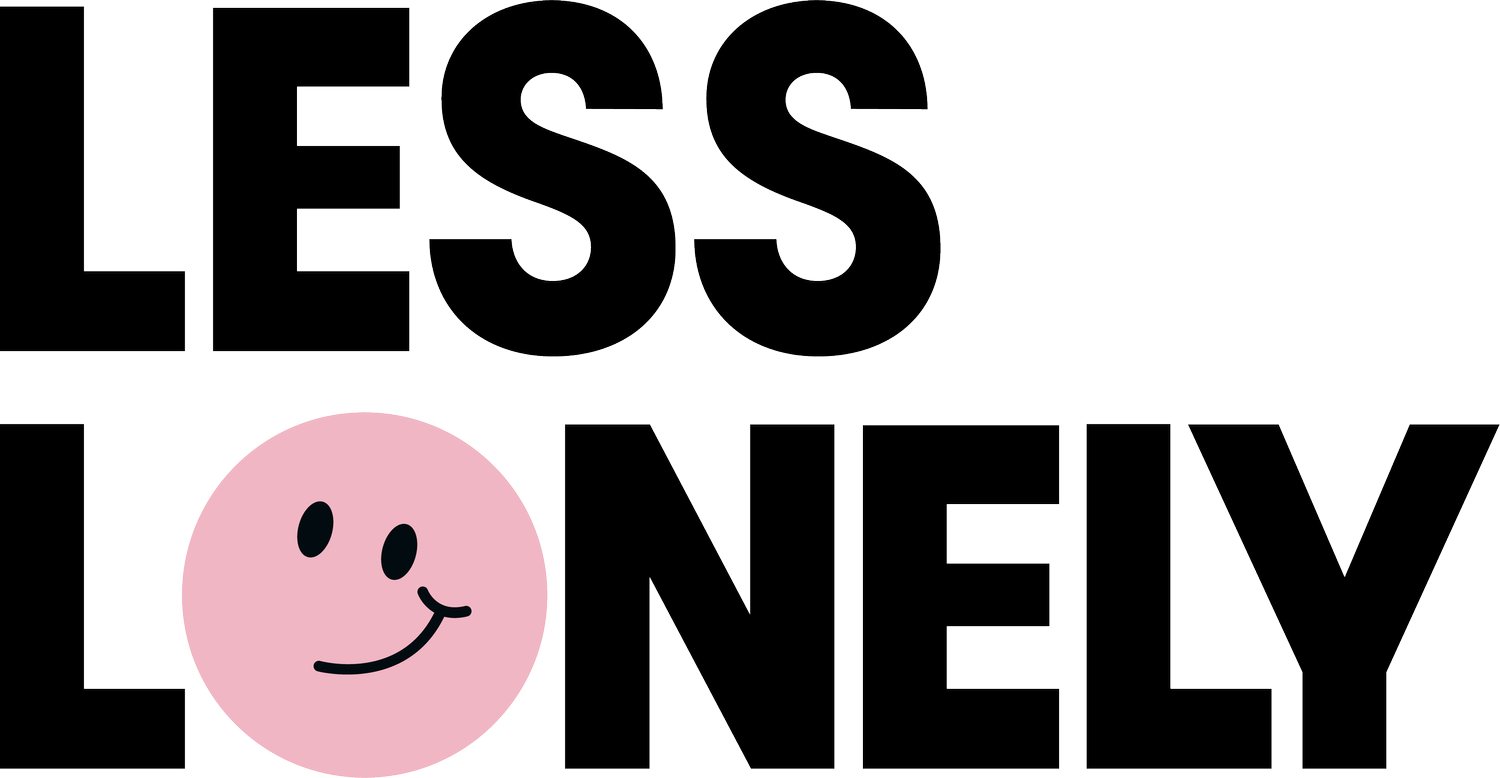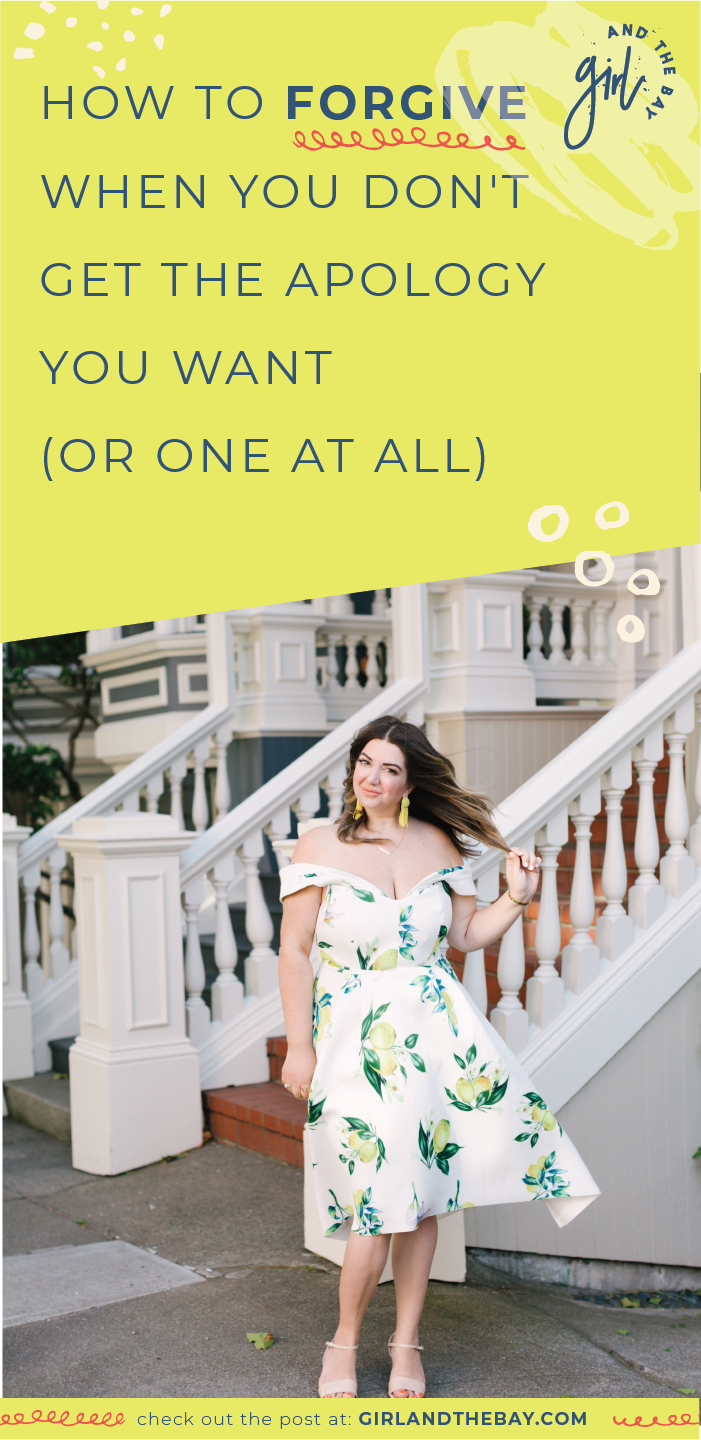How to Forgive When You Don't Get The Apology You Want (Or One At All)
Forgiveness. Without an apology? Oh, hell naw! I can hear it now. Well, we're going there, folks. Why? Because life isn't fair and someone is going to hurt you and not want to give you the apology you think you deserve. In fact, you're probably already thinking about a specific wound from that very specific person, and you already don't want to talk about it.
Maybe your “best friend” disappeared in your darkest hour. Maybe that bully disappeared from your life and will never know what severe damage he did to your ability to function in the world. Maybe we’re talking about a person who promised to love you forever with his words, but who lived out a very different story before he completely disappeared.
Forgiveness is an ancient principle - it's taught by every single religious and thought leader throughout history. In childhood, our teachers and parents force an offender into our space and arrange an exchange of “I’m sorry” and “I forgive you,” but as we experience adulthood, we often find such arrangements are scarce. Not to mention that sometimes many of these offenses are deeply personal...forgiveness is perhaps the last thing you could fathom doing when you take a deep look at the pain the other person caused you.
WHAT FORGIVENESS ISN'T:
Ok, so don't get it twisted...“forgiveness” if often confused with “reconciliation.”
Reconciliation is a beautiful, magical, redeeming experience when it happens — and being a hopeless romantic who hates the thought of a burned bridge, I don’t want to give up hope for the chance that reconciliation can be a possibility. But forgiveness is for you and your heart. Without the other person’s participation, the relationship cannot be healed and you shouldn’t even try to pretend like it is.
Next, we're not talking about a quick fix to years of pain. We are all looking to simply “arrive” at our best possible selves, but even with best efforts, forgiveness is not a steady upward trajectory. It can take time...lots of it. It’s more like a rhythm of highs and lows. But I assure you, every cycle can move you steadily towards freedom and health with some level of commitment. My parents divorced 15 years ago and while I feel like I've let go of any and all resentment + hurt as a result of it, it seems like every few months I'll discover a new issue I need to work through...and someone I need to forgive (usually it's myself) or something I need to let go of (usually it's a matter of letting go of expectations or entitlement).
Also, everyone’s story and situation is different, so take advice with a heaping handful of salt. There aren’t “5 easy steps to healing” when someone hurts you, because there are too many nuances. What is universal is that we should all make every single effort to become an expert in the practice of forgiveness.
What FOrgiveness is:
Recent studies indicate that forgiveness may not just be good for your emotional health, but also your physical health.
A psychological definition says that forgiveness is “a conscious, deliberate decision to release feelings of resentment or vengeance toward a person or group who has harmed you.” Why is it so hard to let go of these feelings?
For one, it’s not fair. Our human bent towards a desire for justice is violated, and so our heart begins a trial of its own — judge, jury, and all — but the perpetrator is a no-show. Secondly, it affects how we think of ourselves. When deeply wronged, we often truly believe it’s because we are flawed and unlovable. You think if you were better in some way, then this person wouldn’t have done what they did. It can take a long time to get out of that pit and when you do, you’re angry.
Which leads me to my next point. You think, if you forgive this person, then you’re letting them off the hook for their transgression. It seems like releasing the feelings associated with the hurt means pardoning the guilty. It doesn’t. One of the most important steps in moving towards true forgiveness is really identifying and naming how you were wronged.
Call it what it was: It sucked. It hurt. It broke your trust. It wasn’t just. It was an abuse of power. You didn’t deserve it. It haunts you. You’ll never get it back. It was evil. Grieve it. Cry about it. Lament it. No matter what happened, there was some kind of loss. Find out how you can physically let this s*it go. I personally have found that writing these things down and then burning them with a candle (Throwing them in a bowl of water after because...have you watched This is Us?! #safetyfirst) helps me to literally see the past burn away.
Then it’s time to move forward.
Our memory often helps wounds fade over time; in that sense, time does help heal wounds. But I’ve found that what really helps expedite the process is gratitude. Oodles have already been written about the benefits of gratitude, but I want to zoom in on the connective tissue between gratitude and forgiveness.
First, remember that you should not expect that thankfulness will just naturally increase; this is a practice that must be intentionally cultivated. Once you intentionally grow in this area, the good things in your life become magnified, and the things you’ve lost because dwarfed.
Next, preach this to yourself: Letting go of anger, pain, bitterness or vengeful thoughts towards someone does not mean you’ve condoned what they’ve done. You are not teaching them a lesson by holding on to these negative sentiments, you are only prolonging your own suffering. That said, like matter, pain cannot be destroyed, it must be transformed. I guarantee you that all of the most amazing people you know have been through extraordinarily painful experiences, but they’ve stewarded that pain in such a way that it has transformed into something that allows them to love better, be more genuine, define their goals, advocate for others, increase their empathy, etc.
We may be pleasantly surprised at what we gain by forgiving what was stolen from us.
Lastly, for me, it was important to learn that the hurtful choices others make against me are not really all about me. I was just a stop on a long journey of their life, which was also fraught with pain and victimization. Reflecting on this idea does not excuse their actions, but it does help to put them in perspective.
Life can be a messy, thrilling, crazy sequence of events in which we all take turns being hurt and hurting one another. We must find a way to choose not to proliferate the cycles of pain and unforgiveness but offer hope to one another, no matter where we’re at in that journey. The art of forgiveness helps us to protect our energy, but also cultivate healthy relationships.
Have you practiced the art of forgiveness lately? Do you need to? I'd love to hear how you've chosen forgiveness and found freedom in an area of your life because of it. Message me or leave a comment below.



